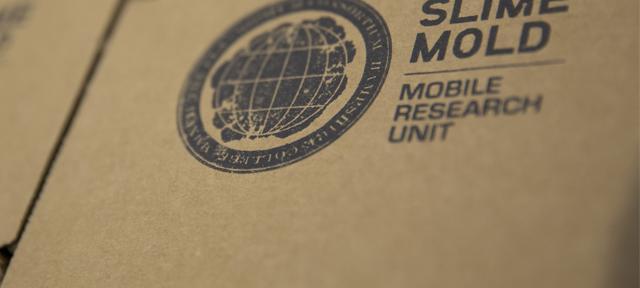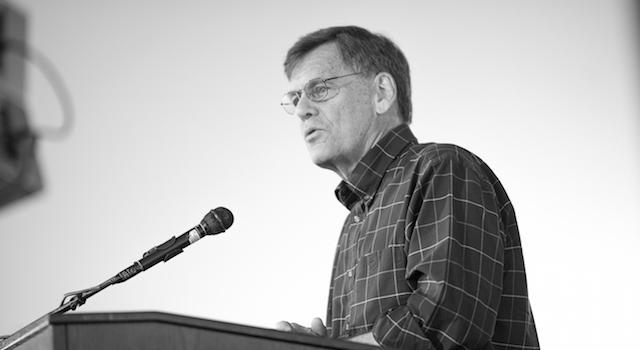Hampshire Policy Institute Releases Research By Non-Human Scholars in Gallery Exhibition, Symposium

A new policy research institute at Hampshire College known as the Plasmodium Consortium is the first in the world to feature policy analysis by non-human scholars, slime molds. Results of the institute’s research are currently available for public viewing in a special exhibition on display at the Hampshire College Art Gallery through March 9. More research will be released at a public symposium on March 2nd. "All are invited to attend," says gallery director Amy Halliday, who serves as outreach coordinator for the Plasmodium Consortium, adding that mobile research units, containing slime mold, petri dishes and nutrient, are freely available to interested parties on request.
The Plasmodium Consortium has worked for the past year with Hampshire College faculty and students, who have translated some of the most contentious issues of our time into scenarios that slime molds can confront in the confines of plastic petri dishes. Observes experimental philosopher Jonathon Keats, who serves as Consortium secretary, "Their advice is objective, and transcends our polarized political environment, because they don't belong to our species."
"We build simplified models," adds Hampshire's Megan Dobro, assistant professor of human biology, who serves as scientific attaché to the consortium. In their simplicity, the models unpack complex issues and lend clarity to policy advice.
The most direct analyses provided by the non-human scholars are logistical. Plasmodium Consortium scholars have spent the past semester studying two multivariable problems that continue to befuddle human policy-makers. One group is researching public transportation in the Pioneer Valley of Western Massachusetts – where Hampshire is located – to design bus routes that will more equitably serve economically disadvantaged populations. Another group is investigating food deserts – areas where communities struggle to access healthful ingredients – determining how the limited options available at convenience stores might be effectively supplemented with special zoning for supermarkets. In the future, the scholars will calculate where those markets could be optimally positioned.
One topic the Plasmodium Consortium is investigating is human well-being, which the scholars are studying in terms of the relationship between material wealth and environmental damage caused by mining and manufacturing. Other research topics that have resulted in groundbreaking results include immigration and drug policy.
"Given the partisan rancor of contemporary politics, we expect that the unbiased insights of slime molds will be especially appreciated by all sides," says Mr. Keats. "By following their lead, we can move beyond our habitual positions and opinions. Even if they're occasionally mistaken, we can all benefit from getting outside of ourselves by considering the world from their non-human perspective."
LINKS
Article Tags



